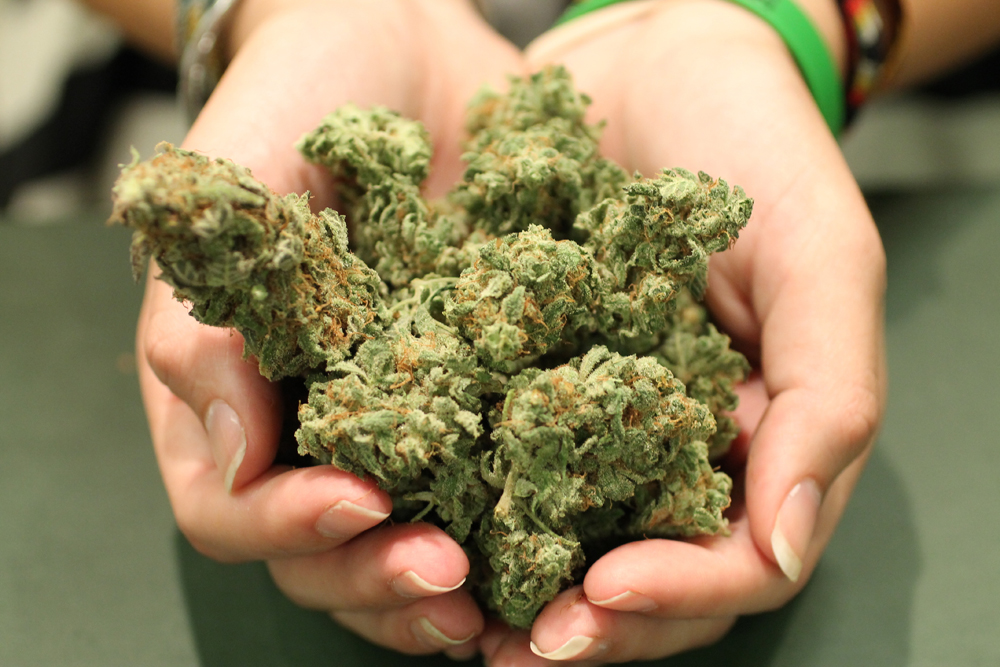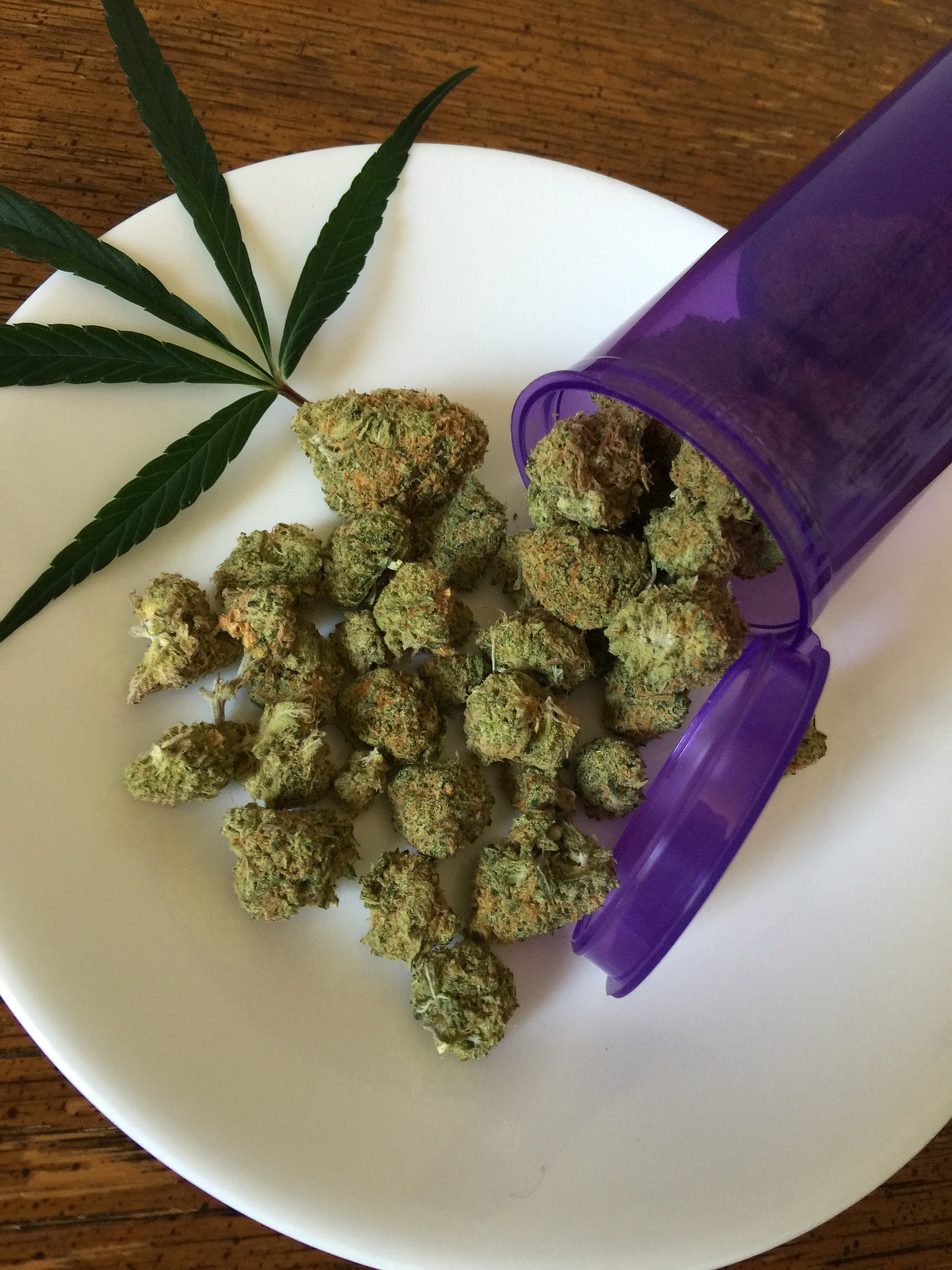Attitudes toward marijuana within the United States have been dramatically changing throughout recent years. As each voting cycle passes, an increasing number of states have legalized marijuana: 28 states and Washington, D.C., permit the use of medical marijuana, and eight of those states also allowing recreational consumption.
In 2016, a Gallup survey found that 60 percent of American citizens support complete decriminalization of marijuana for any purpose and a larger percentage support marijuana exclusively for medicinal use.
Although the public at large now has favorable views on the drug, what about those within the fields of traditional medicine?
WebMD, a popular site used by health professionals, conducted a survey in 2014 asking 1,544 doctors across 48 states and 12 specialties if they support the legalization of medical marijuana. The survey found overwhelming support for legalization. Most doctors said the drug should be legal in their states or, at the very least, an option for suffering patients.
With this support for medical marijuana, why is there still a significant lack of scientific research being conducted? Unfortunately, marijuana is still outlawed by the federal government, designated a Schedule I substance with “no accepted medicinal use and a high potential for abuse.” Due to the strict federal oversight of medical research, making progress is easier said than done.
Many credentialed doctors have come forward to express their issues with the government standing in the way of important medical research in relation to marijuana.
“Millions of patients are using this plant, and we need to understand it,” says Sue Sisley, a doctor and researcher at the University of Arizona. “It is negligent for states to go selling cards to marijuana patients without actively conducting rigorous medical marijuana research that’s necessary.”
So why are experts in the field of traditional medicine finally coming around to medical marijuana?
Although research into the drug is far less extensive than it should be, a number of studies have shown findings that suggest marijuana holds the potential to treat a plethora of medical problems — and often more effectively than traditional medicine. The list of ailments that can be treated with the use of marijuana is wide-ranging. Below we examine some of the most promising of treatments.
Nausea and a Loss of Appetite
According to the Institute of Medicine, medical marijuana can greatly assist with nausea and a loss of appetite. Evidence supporting this is obtained through studying those going through treatment for cancer, such as chemotherapy. Common side effects of cancer treatment are rapid weight loss, along with a loss of appetite. A study out of St. John’s Hospital in Tulsa, Oklahoma, found that through the use of medical marijuana, patients’ nausea and appetites improved by an average of 38%.
Parkinson’s Disease and General Pain Relief
Parkinson’s disease and general pain relief are often cited as the most common reason why patients choose to consume medical marijuana. A study published in the British Journal of Pharmacology found that the psychoactive properties of marijuana could be particularly helpful in treating Parkinson’s. A different study published in Neuropsychopharmacology found that the pain experienced by patients with HIV dropped by 30 percent more than 50 percent of the time through the use of marijuana.
Post-traumatic Stress Disorder
Medical marijuana is also used to support United States veterans. Post-traumatic stress disorder (PTSD) affects about 8 million adults each year. Findings out of the NYU Langone Medical Center concluded that the chemical properties of marijuana are particularly poised for addressing PTSD. “We know very well that people with PTSD who use marijuana often experience more relief than they do from antidepressants,” says the study’s lead researcher, Alexander Neumeister.
Anxiety and Depression
Anxiety and depression affect an estimated 12 percent of Americans. These conditions do not always stem from a traumatic incident but can occur based on the time of year. A research team from Brazil conducted a study surrounding seasonal affective disorder and found that marijuana treatment, when used in moderation, demonstrates a significant decrease in both anxiety and depression. These findings were supported by a separate study out of Vanderbilt University in Nashville, Tennesee.
Epilepsy and Seizures
Although scientific evidence remains limited to animal trials, various stories have circulated regarding those who suffer from epilepsy and seizures. Many of those affected claim that medical marijuana has helped their epilepsy. One woman went as far as to say, “Without medical marijuana, I wouldn’t be alive today.” Multiple families have even moved to Colorado to receive a special strain of marijuana to treat their children’s seizures.
Despite the evidence, marijuana remains a contentious issue in Washington, D.C. Attorney General Jeff Sessions is a vocal about keeping marijuana illegal at a federal level. “Good people don’t smoke marijuana,” he says. Sessions also recently stated that marijuana is “only slightly less awful” than heroin. Needless to say, with extreme opinions such as these at the peak of government, laws are unlikely to be changed for the better any time soon.
Traditional medicine has come around to medical marijuana, even if some politicians don’t agree. The Epilepsy Foundation calling on the Drug Enforcement Administration to relax its restrictions on marijuana so it can be properly studied is just one example of the countless groups of people offering their support. Let’s hope that in the years to come, organizations, members of the public, and politicians alike can find a common ground.


